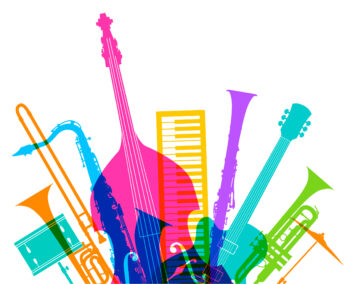Harmonize Your Being: Transformative Healing Music for Inner Tranquility
The Impact of Music on Emotions and Psychological Health
In the realm of psychology and wellness, the extensive influence of songs on emotions and mental wellness has actually long been a topic of passion and research. The intricate relationship between the tunes we listen to and the feelings we really feel is an intricate interplay that professionals and scientists have been exploring for decades. From influencing mood to working as an effective device for anxiety monitoring, songs's duty fit mental wellness is complex and deserving of more expedition. As we browse the subtleties of just how songs links with our emotional landscape and mental wellness, a deeper understanding of its potential to uplift, soothe, or prompt assumed arises, welcoming us to consider the relevance of this universal language in our every day lives.
Impact of Songs on State Of Mind

Research has shown that songs can regulate state of mind by turning on neural pathways associated with emotions in the brain. Paying attention to songs can boost the launch of neurotransmitters like dopamine and serotonin, which are known to regulate mood and emotions. This physiological reaction to music describes why particular tunes can immediately uplift our spirits or bring tears to our eyes. Comprehending exactly how music influences mood can have significant implications for using music as a healing device for psychological law and psychological health.
Link In Between Music and Stress And Anxiety
The interaction between music stimuli and the human action to tension has been a topic of growing interest in the areas of psychology and neuroscience (MUSIC). Music has shown impressive capacity in mitigating stress degrees and advertising leisure. Researches have actually indicated that paying attention to songs can cause physical modifications in the body, such as reduced heart price, reduced blood stress, and decreased degrees of cortisol - a hormonal agent related to tension
The connection in between songs and stress relief is thought to be very closely connected to the impact of music on the limbic system, which plays a crucial role in feelings and tension reactions. In addition, this website individual songs preferences can additionally influence the stress-reducing effects of songs, highlighting the significance of customized strategies when making use of songs as an anxiety management device.
Music as a Therapeutic Device

Research study has revealed that songs treatment can considerably decrease anxiousness, clinical depression, and chronic discomfort. Music has the capacity to evoke memories, boost favorable emotions, and give a feeling of comfort and relaxation.
Influence of Music on Mental Health

Music has actually been located to have profound effects on mental wellness by influencing mood, minimizing tension, and enhancing overall wellness. In addition, songs therapy, an organized use of songs to boost mental health and wellness end results, has actually been shown to be beneficial for people with different mental wellness problems, consisting of post-traumatic stress disorder (PTSD), schizophrenia, and dementia. Generally, the impact of music on psychological health and wellness is an encouraging location of study that uses potential restorative advantages for people encountering various psychological wellness challenges.
Ways to Include Songs for Health
Songs has the power to stimulate feelings and affect our mental state, making it a valuable tool for promoting well-being. One method to integrate songs for wellness is by developing playlists that resonate with certain emotions or goals.
One more way to make use of music for well-being is with active listening. Taking the time to truly involve with the songs, focusing on the verses, instruments, and overall make-up, can strengthen go right here the emotional connection and magnify the therapeutic impacts. This mindful technique to paying attention can help individuals process emotions, decrease anxiousness, and improve general psychological health and wellness.
Furthermore, going to live songs occasions or performances can also add to well-being by providing a feeling of happiness, area, and connection. Belonging to a shared music experience can boost spirits, cultivate a sense of belonging, and develop enduring memories that favorably affect mental wellness.
Conclusion
In verdict, music has a substantial effect on emotions and psychological well-being. It is vital to acknowledge the power of music in advertising emotional equilibrium and mental clarity.
The relationship in between songs and mood is complex, with various elements of songs such as setting, pace, and pitch playing key duties in eliciting emotional feedbacks. Recognizing how music influences state of mind can have considerable ramifications for making use of songs as a healing tool for psychological policy and mental health.
The link between songs and anxiety alleviation is thought to be very closely connected to the impact of music on the limbic system, which plays a vital read function in emotions and stress and anxiety actions. Furthermore, individual songs preferences can likewise affect the stress-reducing impacts of music, highlighting the relevance of customized approaches when making use of music as a stress monitoring tool. Additionally, songs treatment, a structured use of songs to enhance mental health and wellness outcomes, has been shown to be advantageous for people with different mental health conditions, including post-traumatic tension problem (PTSD), schizophrenia, and mental deterioration.